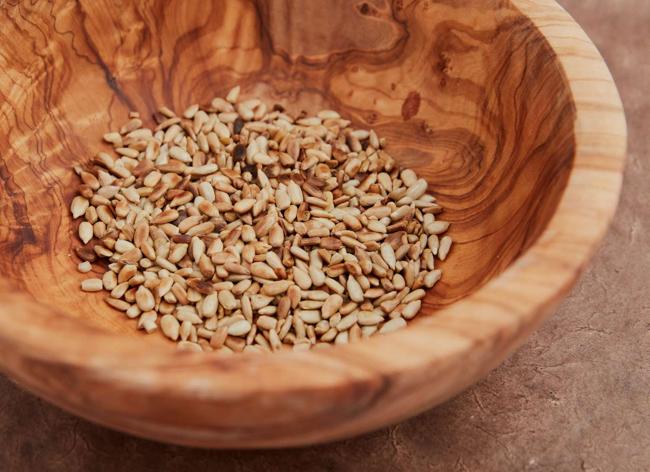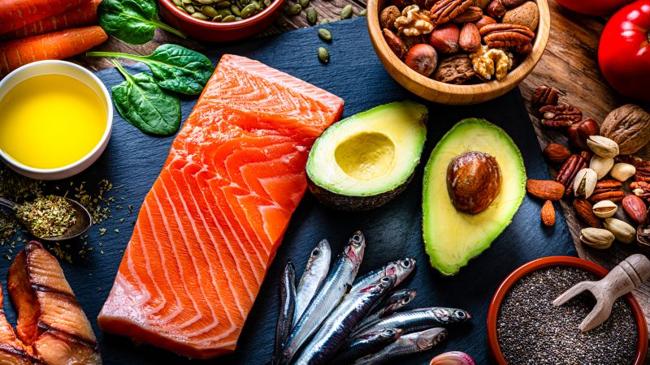Summary
Sunflower seeds are a fun, healthy snack that benefits your heart and immune system. Learn why theyre healthier without salt and in reasonable quantities.
Source: Verywell Health on MSN.com

AI News Q&A (Free Content)
Q1: What are the primary nutritional benefits of consuming sunflower seeds as part of a daily diet?
A1: Sunflower seeds are rich in healthy fats, particularly monounsaturated and polyunsaturated fats, protein, fiber, vitamin E, selenium, and magnesium. These nutrients collectively support heart health, immune function, and overall wellness. The seeds are also a source of phytosterols, which may help lower cholesterol levels when consumed as part of a balanced diet.
Q2: How does daily consumption of sunflower seeds affect heart health, according to recent scientific research?
A2: Regular consumption of sunflower seeds may contribute to improved heart health by providing unsaturated fats and phytosterols, both of which are associated with lower LDL cholesterol levels. The seeds’ magnesium content also supports normal blood pressure. However, it is recommended to choose unsalted varieties and eat them in moderation to avoid excess sodium intake, which can counteract cardiovascular benefits.
Q3: Why is it healthier to consume sunflower seeds without added salt?
A3: Consuming sunflower seeds without added salt is healthier because excess sodium intake is linked to high blood pressure and increased risk of cardiovascular disease. The American Heart Association advises limiting sodium intake, and choosing unsalted sunflower seeds helps keep sodium levels within recommended dietary guidelines while still providing the seeds’ nutritional benefits.
Q4: What potential risks are associated with overconsumption of sunflower seeds?
A4: While sunflower seeds offer valuable nutrients, eating them in large quantities can lead to excessive calorie intake, potentially contributing to weight gain. Additionally, salted varieties can result in high sodium consumption, increasing the risk of high blood pressure and related health issues. Moderation is key to maximizing health benefits and minimizing risks.
Q5: How can sunflower seeds contribute to a balanced nutritional diet, especially for individuals following plant-based eating patterns?
A5: Sunflower seeds are a versatile plant-based protein source and provide essential micronutrients like vitamin E and magnesium. They can be incorporated into a variety of dishes, making them a valuable addition to vegetarian and vegan diets. Their nutrient profile helps fill common gaps in plant-based diets, supporting overall nutritional adequacy.
Q6: What does recent scholarly research reveal about the role of nutrition and dietary choices in maintaining immune health, particularly during adverse economic conditions?
A6: Recent research highlights that economic downturns, such as those during the COVID-19 pandemic, have led to decreased access to nutritious foods among vulnerable groups, particularly women. This decline in dietary quality can negatively impact immune health. The study emphasizes the need for public health measures and targeted interventions to ensure equitable access to balanced nutrition during challenging times.
Q7: What advancements have been made in the estimation and monitoring of dietary nutrition, and how can these benefit individuals seeking to maintain a healthy diet?
A7: Recent advancements in deep learning and automated nutrition estimation—such as using food images to analyze nutritional intake—offer promising tools for individuals to monitor their daily diets. These technologies can help people make informed dietary choices, promote balanced nutrition, and potentially support better health outcomes through accurate and convenient nutrition tracking.
References:
- Sunflower seed - https://en.wikipedia.org/wiki/Sunflower_seed
- Seed oil misinformation - https://en.wikipedia.org/wiki/Seed_oil_misinformation





